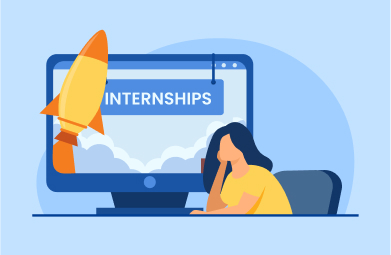The art of asking questions at the end of an interview
About the Author: Tripta Singh is an educator and entrepreneur based out of Singapore. She is passionate about empowering people and is an avid chef and globetrotter.

“Any questions?” The interviewer looks at you expectantly. It’s been the longest half hour of your life. You try to wipe the sweat off your palms discretely while filtering through the zillion questions racing through your head. So, where do you start?
The questions you ask at the end of an interview can be as, if not more, important as your answers to interview questions. Interviewers are often looking out for the types of questions candidates have for them. It tells them a lot about a candidate’s motivation, enthusiasm, initiative, and listening skills.
The following pointers will help in your preparation:
1. Make sure that you ask questions
“No, nothing comes to mind” or “You’ve already answered the questions I had” can be viewed as a cause for concern. It may reflect a lack of interest and initiative or even low confidence levels. Prior to your interview, spend time thinking of potential questions. It’s also essential to remain actively engaged during the interview as questions often stem from that exchange itself.
2. Plan in advance
Preparation is the key to asking good questions – those that reflect your drive and passion, whilst demonstrating industry knowledge and initiative! Prepare at least 5-7 potential questions in advance. This will give you a choice, provided they remain relevant given the interview dynamics. Do make a note of them in case you draw a blank in your interview (this happens to the best of us!).
3. Make them meaningful
Your questions should be relevant and well thought out. Meaningful questions show that you are discerning and provide an impetus for solid answers. Keep in mind whom you are interviewing with – questions directed to HR would be very different from those posed to your prospective boss or senior management. A memorable and well-directed question makes interviewers take notice and can have a lasting impact.
4. Use them to your advantage
Use questions to reinforce and advance your suitability as a strong candidate. Carefully framed questions give you an opportunity to emphasise your experience and skill set. They can also allow you to demonstrate industry knowledge and expertise in a subtle manner. This is the perfect opportunity to direct the discussion such that it enables you to convey any important accomplishments that you didn’t get a chance to touch upon during the interview.
. What are the qualities you believe are most important for someone in this role to possess in order to succeed?
. Would you say your team is missing any skills in particular, that you are looking to fill with this position?
. Do you have any concerns about my suitability for this role?
5. Clarify your doubts
What information do you want to help you decide whether this position and company is for you? Use this chance to clarify any doubts or concerns you may have, but be sure to do so in a tactful manner. This can help circumvent unpleasant surprises at a later date. You may want to know more about a company’s culture, growth opportunities, career trajectory, future plans etc. Use your judgement as to whether your questions are appropriate or premature, depending on the way your interview has progressed. Questions can also be framed such that they reflect accountability and commitment, whilst simultaneously addressing your concerns.
. How are expectations typically set and managed?
. Do you have a performance review mechanism in place?
. What are major challenges someone in this role would face?
. What is the average tenure of an employee in this department/role/company?
. Are there any professional development opportunities available?
6. Show that you are listening
Some of the strongest questions arise from active listening. Being an active listener means to pay full attention to what interviewers ask and disclose during an interview and to engage appropriately. If you have picked up on challenges a company is facing or something new in the pipeline, it would be a good idea to address these through pertinent questions. This will position you as a candidate with keen interest and strong communication skills along with the ability to understand companies’ challenges.
. From what I have gathered, (xyz) is a major hurdle in the regional expansion and will understandably be the top priority for this team. Is it possible to share a little about what has already been done to mitigate this?
. The year ahead sounds tremendously exciting and demanding! Do you already have the headcount in place to support the upcoming requirements?
. You mentioned that the company struggled to (differentiate its product offering from those of its competitors). To what extent has (social media marketing) been successful in tackling this?
7. Build a rapport
Your questions can be integral to building a rapport with the interviewer. There is no harm in using questions to find out more about them, the workplace, and company culture, as long as you are discerning. Finding common interests or discovering connections adds a personal touch to your conversations; however, questions should not be too personal and must be appropriate given the context and position of the interviewer.
. What do you enjoy the most about working here?
. How many years of experience have you had in this sector?
. What do you think differentiates this company from its biggest competitor?
. What do you think will be the biggest challenges/disruptions this industry faces in the next few years?
8. Definite No-No’s!
Do not ask any questions that you should already know the answer to! As a prospective employee, companies will expect that you have done your homework. Thoroughly research the company, industry, and team, and keep well informed on current affairs and industry trends. Questions relating to salary and benefits are premature to ask, especially in a first-round interview. You don’t want to come across as presumptuous or over-confident by initiating such discussions. There will be an appropriate opportunity to discuss these matters once you are further along the interview process or have been made an actual offer.
An interview is a two-way street and should be treated like a conversation where possible. Not only does it allow interviewers to assess your suitability as a candidate but also gives you an opportunity to figure out whether the organisation seems like a good place for you to work. Remember, questions are important not only because they provide vital signals to interviewers, but also because they give you an opportunity to receive invaluable first-hand information.
To master the art of questioning along with learning the techniques of verbal communication and active listening, you can enroll for Internshala’s Business Communication Skills training and get an additional 10% discount.
image credits: pinterest.com



